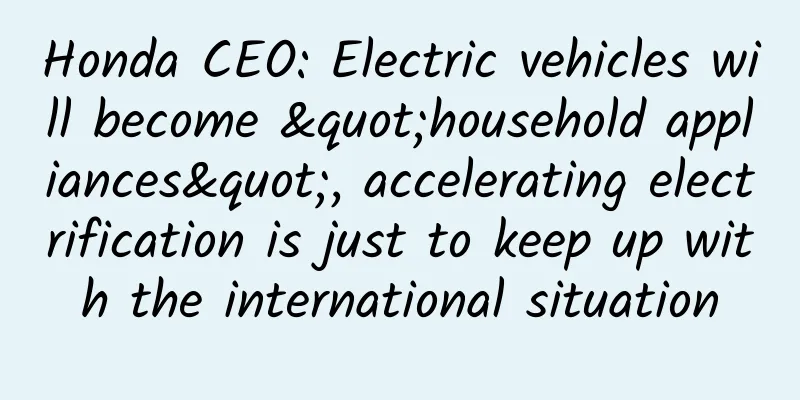Huawei is going to make chips. Does that mean AI startups will be out of business?

|
Recently, Huawei launched the Da Vinci Project and announced that it would enter the field of AI. However, compared with other companies of the same size, Huawei's pace of entering the field of AI is not fast. Huawei's entry into the AI field will drive the development of related industries, but it also brings challenges to some AI start-ups. For example, Cambrian, an AI company that has cooperated with Huawei in the AI field, faces the risk of losing the opportunity to cooperate with Huawei. Recently, not only Huawei has launched an AI chip plan, but Baidu, Alibaba and other companies are also actively deploying in the AI field. Relying on their advantages in technology and capital, the giants have promoted the development of the AI industry, but have also brought more uncertainty to start-ups in the industry. Licensing IP is one of Cambricon's main business forms, which is aimed at AI processors embedded in terminal products, and its customers are mainly system-on-chip (SoC) manufacturers. Another major business of Cambricon is to provide AI smart chips for the cloud. Huawei recently released a full-stack, fully connected AI strategy that covers scenarios from cloud, edge computing to terminals. This means that Huawei will no longer rely on the chip computing architecture provided by Cambrian. Cambrian founder and CEO Chen Tianshi later said that the market for AI chips is huge, and even if Cambrian and Huawei are doing it at the same time, they each have their own space and value. The future focus of giants such as Huawei will still be on cloud-oriented chips, and Cambrian still has the opportunity to cooperate with other terminal manufacturers, so Cambrian still has opportunities in the market for embedded AI chips. At the AI Developer Conference in July this year, Baidu announced the launch of "Kunlun", a full-featured AI chip for the cloud. Alibaba announced at the 2018 Hangzhou Yunqi Conference that it had established Pingtouge Semiconductor Co., Ltd. to focus on AI chip research and development. The first batch of chip products will be used in cloud data scenarios such as Alibaba data centers, city brains, and autonomous driving. The AI plans of companies such as Alibaba, Huawei, and Baidu actually overlap with the businesses of many start-ups, and the competition faced by start-ups will become more intense. Nvidia and Intel are also developing cloud and end-side chips, and their advantages are obvious. Even Huawei has to play the role of a challenger. For startups such as Cambrian, the entry of domestic giants has further intensified the competition. Investing in both cloud and end-side chip R&D shows that the company hopes to play the role of a platform in the industry. Startups have little chance of becoming platforms due to their lack of funds and technology. Unlike large companies that aim to build platforms and focus on cloud chips, many startups choose to start with end-side chips in order to seek business differences with large companies. The early business accumulation has enabled start-ups to obtain a large number of landing scenarios and data. For the obviously fragmented device side, scenarios and data are an important basis for ensuring user experience, which gives start-ups a certain advantage. Different application scenarios of IoT terminal chips have different requirements for chip functions, interfaces, and computing power. The universality of the chip is greatly limited. The advantage of giants such as Huawei and NVIDIA lies in their investment in computing power research and development. However, it is basically impossible for a large company to cover all devices. This also leaves room for start-ups to develop. For AI start-ups, if they are targeting the market with relatively low chip integration, they are not without the opportunity to survive as independent companies in the long term. As a winner of Toutiao's Qingyun Plan and Baijiahao's Bai+ Plan, the 2019 Baidu Digital Author of the Year, the Baijiahao's Most Popular Author in the Technology Field, the 2019 Sogou Technology and Culture Author, and the 2021 Baijiahao Quarterly Influential Creator, he has won many awards, including the 2013 Sohu Best Industry Media Person, the 2015 China New Media Entrepreneurship Competition Beijing Third Place, the 2015 Guangmang Experience Award, the 2015 China New Media Entrepreneurship Competition Finals Third Place, and the 2018 Baidu Dynamic Annual Powerful Celebrity. |
<<: Why did Li Xiang of CHJ Automotive build a range-extended hybrid car?
Recommend
After school starts, two diseases are prevalent, parents must pay attention →
After the spring semester begins, hand, foot and ...
Is it that difficult to see clearly about content entrepreneurship?
Luo Zhenyu held a meeting on content entrepreneur...
[Popular Science of Chinese Military Technology] What “magical powers” can military robots demonstrate when they go to the battlefield at this stage?
As the war mode develops towards unmanned and int...
How to do brand marketing on “World Book Day”, Durex’s book list shines!
Yesterday was World Book Day . What books are you...
To transform from advertising planning to e-commerce marketing planning, do these 3 things!
Nowadays, e-commerce platforms led by Tmall are n...
Why are fireworks colorful? Fireworks and firecrackers are actually different
Expert of this article: Chu Yuhao, PhD of Beijing...
The domestic APM industry is booming: Is OneAPM+Bonree really equivalent to Tingyun?
The hot listing of NewRelic has triggered a frenz...
Why are traffic thinking and free thinking not outdated?
If traffic thinking is compared to the key means ...
New Oriental Kids low-cost customer acquisition case
New Oriental KIDS+ is a new early childhood educa...
Stomach pain may not really be caused by the stomach!
In clinical work, we often encounter patients who...
What is the largest number you can think of? It turns out that counting is also a science
Ask a child what the largest number he can think ...
WeChat group novel project monthly income 10,000-30,000 practical operation method 2.0
Tutorial Contents: Section 1: Advantages of WeCha...
Using convolutional autoencoders to reduce noise in images
Preface I was too busy at work this week. I wante...
American TV series "Friends" all 10 seasons in high definition English with Chinese subtitles
Friends is an American television sitcom created ...
How can App developers in difficult situations save themselves?
[[155642]] “Because the industry is so saturated,...









